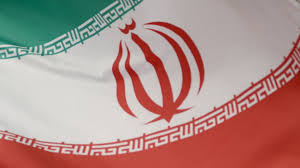Moscow/Tehran — Russia and Iran have signed a landmark agreement to build multiple small nuclear power plants in Iran, a move hailed by both sides as “strategic” but viewed by Western powers as further complicating the standoff over Tehran’s nuclear programme.
The memorandum of understanding (MoU) was signed in Moscow on Wednesday between Rosatom chief Alexei Likhachev and Mohammad Eslami, Iran’s top nuclear official and vice president.
According to Rosatom, the deal forms part of a long-term plan to help Iran reach 20 gigawatts of nuclear energy capacity by 2040 through the construction of eight new nuclear plants.
“This is a key step toward energy security and diversification for Iran,” Eslami said after the signing, adding that the new plants would help reduce the country’s reliance on fossil fuels and curb chronic power shortages during peak summer demand.
Iran currently operates just one nuclear power plant — the Russian-built Bushehr facility — which has a capacity of about 1GW. Chronic electricity shortages have caused blackouts across the country in recent years, fueling public frustration and pressuring authorities to find long-term solutions.
Energy analysts say the new agreement could dramatically boost Iran’s civilian nuclear capacity and position the country as a regional hub for nuclear energy production, though it is likely to intensify scrutiny from the West.
The signing comes just days before a looming deadline that could see United Nations sanctions snap back on Iran’s economy, freezing billions in assets abroad and curbing its arms trade.
The UN Security Council voted last week not to permanently lift sanctions, triggering a 30-day countdown for Tehran to meet demands from the E3 (United Kingdom, France, Germany) over its nuclear activities.
If no agreement is reached by September 28, sanctions automatically resume.
Western nations have accused Tehran of stockpiling uranium over 40 times the level permitted under the 2015 nuclear deal, known as the Joint Comprehensive Plan of Action (JCPOA), which limited enrichment to 3.67 percent purity.
Former US President Donald Trump unilaterally withdrew from the deal in 2018, reimposing crippling sanctions — a move that Tehran cites as justification for its enrichment ramp-up.
“The so-called snapback is illegal and politically motivated,” Eslami said this week, warning that reinstating sanctions would force Iran to “suspend cooperation” with the International Atomic Energy Agency (IAEA).
Russia was one of four countries that voted against the return of sanctions, underscoring the deepening partnership between Moscow and Tehran at a time when both face Western isolation.
“Our cooperation with Iran is mutually beneficial and contributes to regional stability,” Rosatom’s Likhachev said, hinting at further collaboration in nuclear technology and training.
The partnership is also a geopolitical statement: both nations have been subjected to extensive US and European sanctions — Moscow over its war in Ukraine and Tehran over its nuclear programme and human rights record — pushing them into closer economic and security cooperation.
The announcement has already triggered alarm in Israel, which considers Iran’s nuclear infrastructure a potential existential threat. Earlier this year, Israel launched a 12-day military campaign targeting several Iranian nuclear facilities, in what it called a preemptive move to slow Tehran’s enrichment progress.
Washington has yet to comment on the deal, but US officials have previously warned against deepening nuclear cooperation with Tehran, insisting that any expansion of its programme must remain under strict IAEA oversight.
Iran’s Supreme Leader Ayatollah Ali Khamenei on Tuesday ruled out direct negotiations with the United States, calling such talks “a sheer dead end.” Meanwhile, President Masoud Pezeshkian, addressing the UN General Assembly, reiterated that Iran would “never seek a nuclear weapon,” insisting its programme is entirely peaceful.
Analysts say the deal could complicate last-minute efforts to avoid a full snapback of sanctions.
“This agreement sends a message that Iran is not waiting for Western approval to develop its nuclear sector,” said Dr. Sara Motamed, a Middle East energy analyst. “But it also risks deepening the divide and accelerating punitive measures from the US and EU.”
If sanctions return next week, the economic pain could further squeeze Iran’s economy, already strained by inflation and a depreciating currency, while potentially hardening its stance against Western powers.



